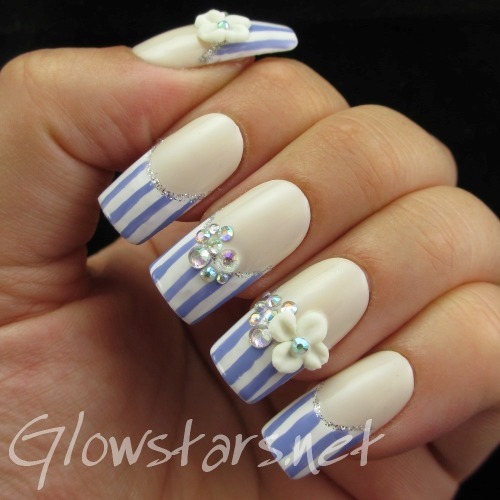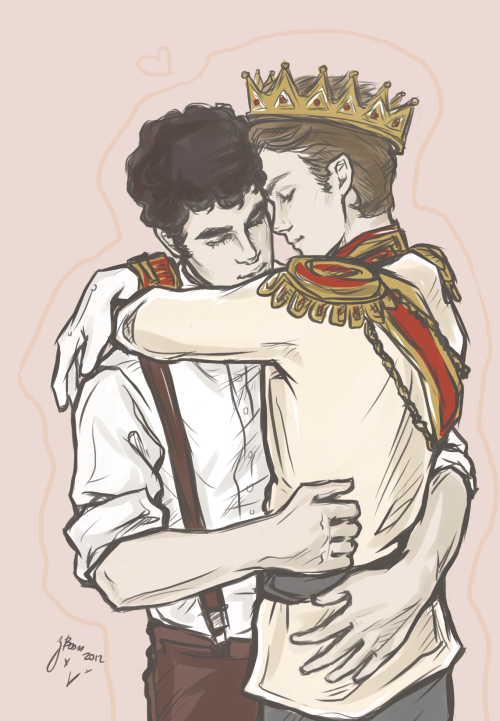Oct. 1st, 2014
me at home: i've been wearing the same jeans and band shirt for the last three weeks but it still smells alright so i'll keep wearing it
me going away: I NEED ONE SHIRT FOR EACH DAY AND EXTRA IN CASE IT GETS DIRTY AND THE SAME AMOUNT OF JEANS AND SOCKS ACTUALLY NO I'LL NEED EXTRA SOCKS IN CASE IT FLOODS AND DOUBLE THE UNDERWEAR IN CASE OF DISASTER AND ONE NICE OUTFIT IN CASE I GET INVITED TO TEA WITH THE QUEEN
via:Tumblr http://ift.tt/1wWCKSQ

me going away: I NEED ONE SHIRT FOR EACH DAY AND EXTRA IN CASE IT GETS DIRTY AND THE SAME AMOUNT OF JEANS AND SOCKS ACTUALLY NO I'LL NEED EXTRA SOCKS IN CASE IT FLOODS AND DOUBLE THE UNDERWEAR IN CASE OF DISASTER AND ONE NICE OUTFIT IN CASE I GET INVITED TO TEA WITH THE QUEEN
via:Tumblr http://ift.tt/1wWCKSQ

Cool Stuff FAQ | Archive of Our Own
Oct. 1st, 2014 07:39 amao3org:
We have updated our list of third-party tools, userscripts, and bookmarklets! It’s not a complete list, just a selection of things we found around the net or that were pointed out to us by users. Some of these were even created by AO3 coders when not working on Archive code. \o/ However, please keep in mind that we can’t provide technical support for any of these unofficial tools. If something stops working, pls contact the creator who can look into a fix.
Here’s a few of the newest additions and classic add-ons:
If you use Google Drive to work on fics, fannish meta, or other text-based fanworks, you might have run into formatting issues when copying from Google Drive to our Rich Text Editor. In particular, italics and bold text will not be carried over correctly when copy-pasting the text. To solve this problem, OTW Translation volunteer Min has created a script for Google Drive that will take your finished work and convert all basic formatting into HTML for you. You can see it in action in this example document for posting to the AO3. Look for the “Make a copy…” option in the File menu, which will put a private copy of the document into your own Google Drive account. Then just delete the sample text and use the blank document for your own writing. When you’re done, hit the “Post to AO3” menu to prepare the whole thing for pasting into the HTML editor with a simple button click. HTML tags will be added for you! In most cases, this will be much more reliable than using the Rich Text Editor.
To view all Movie fandoms or any other of our fandom listings sorted by number of works instead of alphabetically, use this Reorder Fandoms bookmarklet by carene waterman.
Front end coder tuff_ghost cloned the popular Tumblr Savior script for use on the Archive: AO3 Savior lets you define creators, tags, or summary keywords and will hide all work blurbs that contain one or more of these terms.
Check out adevyish’s AO3 Lazier userscript which adds a Latest Chapter button next to the chapter dropdown.
The AO3 Statistics CSV Bookmarklet by Flamebyrd lets you download your AO3 work stats (number of hits, kudos, bookmarks etc.) as a .csv file, which can be neatly imported into a spreadsheet for your own number-crunching.
via:Tumblr http://ift.tt/1v3GVuy

We have updated our list of third-party tools, userscripts, and bookmarklets! It’s not a complete list, just a selection of things we found around the net or that were pointed out to us by users. Some of these were even created by AO3 coders when not working on Archive code. \o/ However, please keep in mind that we can’t provide technical support for any of these unofficial tools. If something stops working, pls contact the creator who can look into a fix.
Here’s a few of the newest additions and classic add-ons:
If you use Google Drive to work on fics, fannish meta, or other text-based fanworks, you might have run into formatting issues when copying from Google Drive to our Rich Text Editor. In particular, italics and bold text will not be carried over correctly when copy-pasting the text. To solve this problem, OTW Translation volunteer Min has created a script for Google Drive that will take your finished work and convert all basic formatting into HTML for you. You can see it in action in this example document for posting to the AO3. Look for the “Make a copy…” option in the File menu, which will put a private copy of the document into your own Google Drive account. Then just delete the sample text and use the blank document for your own writing. When you’re done, hit the “Post to AO3” menu to prepare the whole thing for pasting into the HTML editor with a simple button click. HTML tags will be added for you! In most cases, this will be much more reliable than using the Rich Text Editor.
To view all Movie fandoms or any other of our fandom listings sorted by number of works instead of alphabetically, use this Reorder Fandoms bookmarklet by carene waterman.
Front end coder tuff_ghost cloned the popular Tumblr Savior script for use on the Archive: AO3 Savior lets you define creators, tags, or summary keywords and will hide all work blurbs that contain one or more of these terms.
Check out adevyish’s AO3 Lazier userscript which adds a Latest Chapter button next to the chapter dropdown.
The AO3 Statistics CSV Bookmarklet by Flamebyrd lets you download your AO3 work stats (number of hits, kudos, bookmarks etc.) as a .csv file, which can be neatly imported into a spreadsheet for your own number-crunching.
via:Tumblr http://ift.tt/1v3GVuy

endofadream:
since the collab with gladys and jay fell through, i decided to post my fic portion anyway! so i present very flirty blaine teasing kurt with corny pick-up lines until kurt finally caves and bam! shower sex (¬‿¬)
The first thing that Kurt sees when he opens his eyes are Blaine’s. He startles, jerking against the sheets, and comes to the slow realization that Blaine is sprawled out half on top of him, leg slung over his hip. “Oh my god, what?”
Blaine bends down to kiss him, quick, saying, “You just look so adorably fuckable when you’re sleeping. That’s all,” and then he’s gone with a bright flash of a smile, rolling nimbly off the bed and strolling naked towards the bathroom.
Kurt lies there, staring at the ceiling as his morning-muddled mind tries to process what, exactly, just happened.
Read More
via:Tumblr http://ift.tt/1vtFxlf

since the collab with gladys and jay fell through, i decided to post my fic portion anyway! so i present very flirty blaine teasing kurt with corny pick-up lines until kurt finally caves and bam! shower sex (¬‿¬)
The first thing that Kurt sees when he opens his eyes are Blaine’s. He startles, jerking against the sheets, and comes to the slow realization that Blaine is sprawled out half on top of him, leg slung over his hip. “Oh my god, what?”
Blaine bends down to kiss him, quick, saying, “You just look so adorably fuckable when you’re sleeping. That’s all,” and then he’s gone with a bright flash of a smile, rolling nimbly off the bed and strolling naked towards the bathroom.
Kurt lies there, staring at the ceiling as his morning-muddled mind tries to process what, exactly, just happened.
Read More
via:Tumblr http://ift.tt/1vtFxlf

glowstars:
Nail Max Collections vol. 10 – design Blue Green 021
To read the blog post click the title link above
via:Tumblr http://ift.tt/1rtYYMz

Nail Max Collections vol. 10 – design Blue Green 021
To read the blog post click the title link above
via:Tumblr http://ift.tt/1rtYYMz

LINK: http://ift.tt/1m77wHV
Written for a prompt on the GKM. Kurt picks Blaine up at Scandals one night and takes him home. Confident, b!p Kurt and inexperienced Blaine.!fic, site:archiveofourown, fandom:glee, rating:explicit, pairing:blaine.anderson/kurt.hummel, ~author:thatsoulforyouisinme, genre:au, genre:porn, kink:boy!pussy/girl!peen, thesetagsareproblematic
via:Tumblr http://ift.tt/1xB4BuU

Written for a prompt on the GKM. Kurt picks Blaine up at Scandals one night and takes him home. Confident, b!p Kurt and inexperienced Blaine.!fic, site:archiveofourown, fandom:glee, rating:explicit, pairing:blaine.anderson/kurt.hummel, ~author:thatsoulforyouisinme, genre:au, genre:porn, kink:boy!pussy/girl!peen, thesetagsareproblematic
via:Tumblr http://ift.tt/1xB4BuU

moonlitwatersunnyriver:
When was the last time you stood in a grocery store and just listened to everything around you? Depending on where you are, you probably heard all sorts of different things. Especially if you’re in a city, you’ll likely hear all sorts of different accents. You’ll hear mothers tell off their children, you’ll hear friends laughing with each other, you’ll hear one cashier make some snarky comment. You’ll certainly hear your share of Valley Girl impersonations.
And yet, when you crack open a book, chances are all the characters will speak in the same way. Dialogue and speech patterns are some of the hardest things to duplicate in literature. Part of that is because of the lack of actual sound - you can say that somebody has a Russian accent all you want, but your readers can’t hear it. For the same reason, writers duplicate what they’re used to reading - not what they’re used to hearing. For example, if you’re reading a story by an American that uses a lot of weird little British terms, chances are they’ve been reading mostly British fiction.
The main goal for dialogue isn’t to have all your characters be witty, or have them all be shy, or have them all be anything. Your characters’ speech patterns should be as diverse as your characters themselves. With that in mind, here’s some tips and tricks to help change up your character’s speech patterns.
1. Catchphrases and Verbal Tics
Ever notice that one phrase or that one word your friend won’t stop using? For a long time, I couldn’t stop saying “S’all good.” It wasn’t even “It’s all good.” That doesn’t reflect the reality. It was “S’all good.” A friend of mine used “Fair enough” so often that my mum actually tried to get her to replace it with “That would be lovely, thank you.”
These are great ways to characterize people in books and stories, too. Many of these verbal tics are also connected to locality and accent, so they can give a real sense of place. Ending sentences with “eh” is (stereotypically but also real) Canadian; ending them with “yeah?” can be Canadian or British. Even within Britain, Ron’s “bloody hell” and Hermione’s “Honestly!” invoke complete differently accents.
But be careful! While a few well-placed tics can be good, overdoing them can make your dialogue horrible and clunky. Also, don’t have characters share tics unless they’re meant to share a locale, place of origin or something else important. Otherwise the main purpose of tics - to easily identify a character even when not tagged - is lost.
2. Types of Words and Sentences
Building off of the first tip, Ron and Hermione from Harry Potter not only have different verbal tics - they speak completely differently. Hermione, as a precocious bookworm, uses a lot of bigger words and more complex sentences in the first novel than either Harry or Ron. In contrast, Ron is very blunt and to the point. Hermione will preface something with “I can’t believe I didn’t think of this before! I had this checked out for light reading, and guess what I found…” and Ron will just go, “Hey, check this out.”
Take note - Hermione isn’t using 7-syllable words. She’s just talking more, and using different structures. Some people will use more complex words, especially if you’re writing scientists or academics. And it’s just as revealing to character when somebody doesn’t understand that jargon. Cosima and Sarah in Orphan Black are great examples of this, when Cosima starts talking sciencey and Sarah’s just like ‘wot?’.
The trick with this kind of differentiation is to make sure that it doesn’t just make other characters come across as stupid. Harry and Ron aren’t stupid compared to Hermione - their skills are just in completely different things. So while their diction and vocabulary will be worlds apart from hers (and theirs from each other, especially when taking wizarding vs. muggle jargon into account), it shouldn’t come across as ‘caveman meets astronaut’.
3. Accents
My general advice with written accents is not to bother. Sometimes it works out, but more often than not, the result is racist, classist and/or annoying to read. However, sometimes dialect - the specific words and slang, rather than the accent itself - is important to include. And other times, there’s a specific voice you want to evoke.
The easiest way to do this, especially for those who don’t know accents/dialects very well, is simply to describe it.
"This is so disappointing!" she cried in a thick Yorkshire brogue, holding the shoe aloft.
This can be kind of boring though. Apostrophes, like italics, can be used to give the reader an idea of the cadence of somebody’s voice.
"This is so disappointin’!” she cried in a thick Yorkshire brogue, holding the shoe aloft.
What you want to avoid is something like this:
"This es so des-app-oint-n’!” she cried in a thick Yorkshire brogue, holding the shoe aloft.
It’s hard to read and doesn’t add anything particularly special to our understanding of what this woman (for the curious, Minister Mason from Snowpiercer) sounds like. (NB: I know JK Rowling did it for Hagrid. I still find it distasteful.) Dialect, however, means using the words and not necessarily using phonetic spelling. For example, a Yorkshire girl in your story, especially one from a few decades, ago, might use ‘nowt’ for nothing, ‘nay’ for no and ‘thou/thee’ instead of ‘you’. In contrast, someone from the American South may talk about having ‘barbecue’ (instead of the act of barbecuing something), say ‘y’all’ and talk about people ‘a-hootin’ and a-hollerin”. These are really recognizable ways to give your character an accent without spelling it out on the page.
4. Humour
This is a drastically overlooked facet of character development, and has more to do with speech patterns than most people think. What kind of sense of humour does one character have as opposed to another? One person might attempt to tell jokes and fail at it (think Marlin from Finding Nemo), another might insert bad puns into everything, another might just make weird, zany connections, another might be a deadpan snarker who pokes fun at everything. All of these are written in completely opposite ways. Compare:
"H-hey guys, you know what’s black and white and red all over?….Me neither, I forgot. Never mind."
"Pirates versus ninjas. How very original."
"Look! Look at the rainbow! Doesn’t it make you think of vomiting unicorns?…Ed, you’re making the face at me again. Why the face? WHY THE FACE?"
"Have a nice trip! See you next fall!…What? Oh, fine, I’ll go help him up. Still funny!"
Even without the necessary context, all four feel like they’re different people. (For those paying attention and spitting out their drink right now, that’s Envy, Russell, Ling and Ed from 1000 Names because they’re the perfect example of this.) Your sense of humour creeps into everything, and that’s important when creating characters who are easily discernable by speech alone.
via:Tumblr http://ift.tt/1rFOLtW

When was the last time you stood in a grocery store and just listened to everything around you? Depending on where you are, you probably heard all sorts of different things. Especially if you’re in a city, you’ll likely hear all sorts of different accents. You’ll hear mothers tell off their children, you’ll hear friends laughing with each other, you’ll hear one cashier make some snarky comment. You’ll certainly hear your share of Valley Girl impersonations.
And yet, when you crack open a book, chances are all the characters will speak in the same way. Dialogue and speech patterns are some of the hardest things to duplicate in literature. Part of that is because of the lack of actual sound - you can say that somebody has a Russian accent all you want, but your readers can’t hear it. For the same reason, writers duplicate what they’re used to reading - not what they’re used to hearing. For example, if you’re reading a story by an American that uses a lot of weird little British terms, chances are they’ve been reading mostly British fiction.
The main goal for dialogue isn’t to have all your characters be witty, or have them all be shy, or have them all be anything. Your characters’ speech patterns should be as diverse as your characters themselves. With that in mind, here’s some tips and tricks to help change up your character’s speech patterns.
1. Catchphrases and Verbal Tics
Ever notice that one phrase or that one word your friend won’t stop using? For a long time, I couldn’t stop saying “S’all good.” It wasn’t even “It’s all good.” That doesn’t reflect the reality. It was “S’all good.” A friend of mine used “Fair enough” so often that my mum actually tried to get her to replace it with “That would be lovely, thank you.”
These are great ways to characterize people in books and stories, too. Many of these verbal tics are also connected to locality and accent, so they can give a real sense of place. Ending sentences with “eh” is (stereotypically but also real) Canadian; ending them with “yeah?” can be Canadian or British. Even within Britain, Ron’s “bloody hell” and Hermione’s “Honestly!” invoke complete differently accents.
But be careful! While a few well-placed tics can be good, overdoing them can make your dialogue horrible and clunky. Also, don’t have characters share tics unless they’re meant to share a locale, place of origin or something else important. Otherwise the main purpose of tics - to easily identify a character even when not tagged - is lost.
2. Types of Words and Sentences
Building off of the first tip, Ron and Hermione from Harry Potter not only have different verbal tics - they speak completely differently. Hermione, as a precocious bookworm, uses a lot of bigger words and more complex sentences in the first novel than either Harry or Ron. In contrast, Ron is very blunt and to the point. Hermione will preface something with “I can’t believe I didn’t think of this before! I had this checked out for light reading, and guess what I found…” and Ron will just go, “Hey, check this out.”
Take note - Hermione isn’t using 7-syllable words. She’s just talking more, and using different structures. Some people will use more complex words, especially if you’re writing scientists or academics. And it’s just as revealing to character when somebody doesn’t understand that jargon. Cosima and Sarah in Orphan Black are great examples of this, when Cosima starts talking sciencey and Sarah’s just like ‘wot?’.
The trick with this kind of differentiation is to make sure that it doesn’t just make other characters come across as stupid. Harry and Ron aren’t stupid compared to Hermione - their skills are just in completely different things. So while their diction and vocabulary will be worlds apart from hers (and theirs from each other, especially when taking wizarding vs. muggle jargon into account), it shouldn’t come across as ‘caveman meets astronaut’.
3. Accents
My general advice with written accents is not to bother. Sometimes it works out, but more often than not, the result is racist, classist and/or annoying to read. However, sometimes dialect - the specific words and slang, rather than the accent itself - is important to include. And other times, there’s a specific voice you want to evoke.
The easiest way to do this, especially for those who don’t know accents/dialects very well, is simply to describe it.
"This is so disappointing!" she cried in a thick Yorkshire brogue, holding the shoe aloft.
This can be kind of boring though. Apostrophes, like italics, can be used to give the reader an idea of the cadence of somebody’s voice.
"This is so disappointin’!” she cried in a thick Yorkshire brogue, holding the shoe aloft.
What you want to avoid is something like this:
"This es so des-app-oint-n’!” she cried in a thick Yorkshire brogue, holding the shoe aloft.
It’s hard to read and doesn’t add anything particularly special to our understanding of what this woman (for the curious, Minister Mason from Snowpiercer) sounds like. (NB: I know JK Rowling did it for Hagrid. I still find it distasteful.) Dialect, however, means using the words and not necessarily using phonetic spelling. For example, a Yorkshire girl in your story, especially one from a few decades, ago, might use ‘nowt’ for nothing, ‘nay’ for no and ‘thou/thee’ instead of ‘you’. In contrast, someone from the American South may talk about having ‘barbecue’ (instead of the act of barbecuing something), say ‘y’all’ and talk about people ‘a-hootin’ and a-hollerin”. These are really recognizable ways to give your character an accent without spelling it out on the page.
4. Humour
This is a drastically overlooked facet of character development, and has more to do with speech patterns than most people think. What kind of sense of humour does one character have as opposed to another? One person might attempt to tell jokes and fail at it (think Marlin from Finding Nemo), another might insert bad puns into everything, another might just make weird, zany connections, another might be a deadpan snarker who pokes fun at everything. All of these are written in completely opposite ways. Compare:
"H-hey guys, you know what’s black and white and red all over?….Me neither, I forgot. Never mind."
"Pirates versus ninjas. How very original."
"Look! Look at the rainbow! Doesn’t it make you think of vomiting unicorns?…Ed, you’re making the face at me again. Why the face? WHY THE FACE?"
"Have a nice trip! See you next fall!…What? Oh, fine, I’ll go help him up. Still funny!"
Even without the necessary context, all four feel like they’re different people. (For those paying attention and spitting out their drink right now, that’s Envy, Russell, Ling and Ed from 1000 Names because they’re the perfect example of this.) Your sense of humour creeps into everything, and that’s important when creating characters who are easily discernable by speech alone.
via:Tumblr http://ift.tt/1rFOLtW

slapmymind:tastykake:
Taylor Swift vs. Avril Lavigne - We are Complicated
#this sounds like the act 1 finale of a teenage lesbian jukebox musical
#that tag changes everything
via:Tumblr http://ift.tt/1vxrqwb

Taylor Swift vs. Avril Lavigne - We are Complicated
#this sounds like the act 1 finale of a teenage lesbian jukebox musical
#that tag changes everything
via:Tumblr http://ift.tt/1vxrqwb

redbullandcupcakebatter:
sararye:
FOR THE LOVE OF GOD SOMEONE MAKE THIS A 7 PART BOOK AND MOTION PICTURE SERIES PLEASE
UGH I HAVE HAD THE OUTLINE FOR FAIRYTALE!KLAINE FOR A YEAR.
LITERALLY
A
YEAR
actually more.
UGH.
NEED IT.
via:Tumblr http://ift.tt/1vy2MMQ

sararye:
FOR THE LOVE OF GOD SOMEONE MAKE THIS A 7 PART BOOK AND MOTION PICTURE SERIES PLEASE
UGH I HAVE HAD THE OUTLINE FOR FAIRYTALE!KLAINE FOR A YEAR.
LITERALLY
A
YEAR
actually more.
UGH.
NEED IT.
via:Tumblr http://ift.tt/1vy2MMQ

Figment's “On the Road” Chat Recap
Oct. 1st, 2014 07:42 pmmisseditorial:
What’s your biggest tip for writing a strong lead character?
Sarah Rees Brennan: Have them drive the action: their decisions and their feelings, and nobody else’s. Writers write… protagonist PROTAG!
Maureen Johnson: A too-perfect character is annoying.
Maureen Johnson: They have to be up to the challenges you throw at them. And then you must beat them relentlessly.
Sarah Rees Brennan: Endless suffering. People do not read books about good things happening to people.
Sarah Rees Brennan: The Lord of The Rings was not Frodo & Sam’s Excellent Road Trip.
via:Tumblr http://ift.tt/1xCDCPD

What’s your biggest tip for writing a strong lead character?
Sarah Rees Brennan: Have them drive the action: their decisions and their feelings, and nobody else’s. Writers write… protagonist PROTAG!
Maureen Johnson: A too-perfect character is annoying.
Maureen Johnson: They have to be up to the challenges you throw at them. And then you must beat them relentlessly.
Sarah Rees Brennan: Endless suffering. People do not read books about good things happening to people.
Sarah Rees Brennan: The Lord of The Rings was not Frodo & Sam’s Excellent Road Trip.
via:Tumblr http://ift.tt/1xCDCPD

LINK: http://ift.tt/X4CLHf
Terissa’s nightmares always start and end the same way. They start with Sarah Connor and they end with death.!fic, site:archiveofourown, fandom:terminator:thesarahconnorchronicles, rating:teenandupaudiences, ~author:chaila, genre:gen, character:terissa.dyson
via:Tumblr http://ift.tt/1v83L41

Terissa’s nightmares always start and end the same way. They start with Sarah Connor and they end with death.!fic, site:archiveofourown, fandom:terminator:thesarahconnorchronicles, rating:teenandupaudiences, ~author:chaila, genre:gen, character:terissa.dyson
via:Tumblr http://ift.tt/1v83L41











